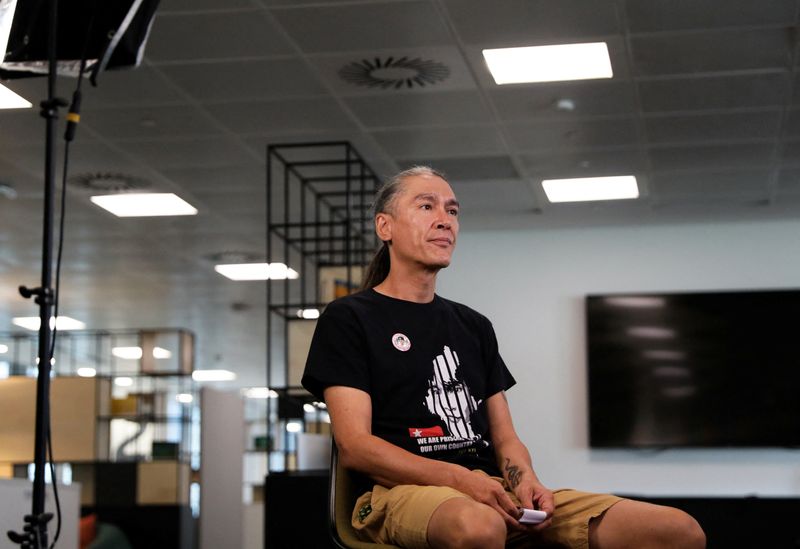By Andrew MacAskill
LONDON (Reuters) - The son of Aung San Suu Kyi, Myanmar's detained former leader, said he was "extremely worried" about his mother's health, saying she was struggling to eat and was being refused permission to see an outside doctor.
The 78-year-old Nobel laureate, who has been detained for more than two years, has experienced bouts of dizziness and vomiting, and is suffering from a serious gum disease, her son, Kim Aris, who lives in Britain, told Reuters.
"I am extremely worried about the state she is in," he said. "She is not as robust as she once was. If she is unable to eat, then things are not looking very hopeful."
Myanmar has been in turmoil since early 2021, when the military overthrew Suu Kyi's elected government and cracked down on opponents of military rule, with thousands jailed or killed.
Suu Kyi is facing 27 years of detention related to 14 criminal offences. She denies all the charges for which she was convicted, ranging from incitement and election fraud to corruption, and has been appealing against them.
The Myanmar embassy in London did not respond to a request for comment about Suu Kyi's health and conditions. A spokesperson for the military government did not answer calls on Tuesday and the junta's information team did not immediately respond to a request for comment.
Aris, 45, who in 1991 as a teenager collected the Nobel peace prize for his mother who was under house arrest at the time, has had no contact with his mother since she was most recently detained and the military have not responded to his repeated requests.
"There is no way of communicating with her," he said. "She is not even allowed care packages. She is not allowed access to her legal counsel. She is not allowed visitors. She is not allowed to mingle with other prisoners. It is basically a form of solitary confinement."
In August the military pardoned Suu Kyi on five of the 19 offences for which she was convicted but said she would remain under house arrest. State media reported she had been moved from jail to house arrest shortly before.
Aris said it was untrue that she had been moved.
"They are trying to disseminate this disinformation about my mother being moved to house arrest. This is all about appeasing the international community, but the international community is well aware of this disinformation."
Many governments have called for the unconditional release of Suu Kyi and thousands of other political prisoners, and some, including the United States, European Union and Britain, have targeted the Southeast Asian country's military with sanctions.
Aris has spoken with Britain's foreign ministry, but he said there was little the government could do because they did not have a working relationship with the military.
The international community needed to continue putting pressure on the military, including tougher sanctions, he said.

Aris said he mainly relies on information from Myanmar television channels and social media to keep updated.
Asked if he is concerned that he may never see his mother again, he said: "Obviously, it is a worry."